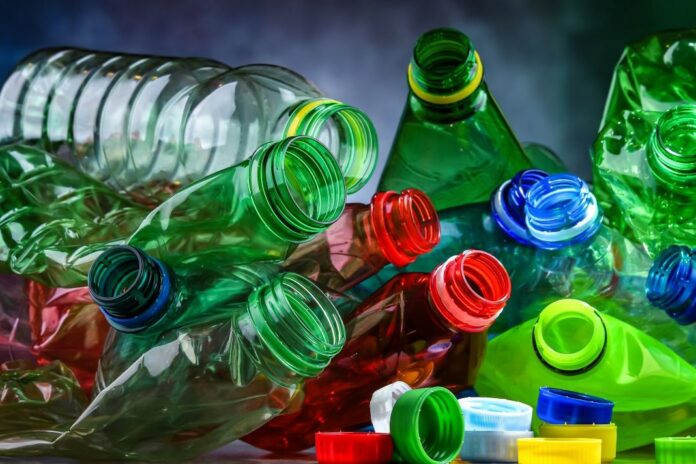Plastics SA – the umbrella body representing the local plastics industry – has released its latest survey results on polymer consumption and recycling figures for the year ending 2023. This year’s report shows significant strides in the recycling sector, whilst highlighting the importance of continued investment in infrastructure and education.
The annual survey, conducted through personal interviews and completed surveys, reported that 295 recycling operations were recorded in South Africa at the end of 2023. Of these, 40% processed post-consumer materials, granulating, washing, and pelletising them. However, only a portion of these recyclers can successfully process landfill-sourced material due to the high capital investment required for proper wash plants, feasible only for larger operations.
Notably, 6.2% of the 273 recycling operations from 2022 ceased operation, while 39 new companies were recorded, indicating both challenges and opportunities within the sector.
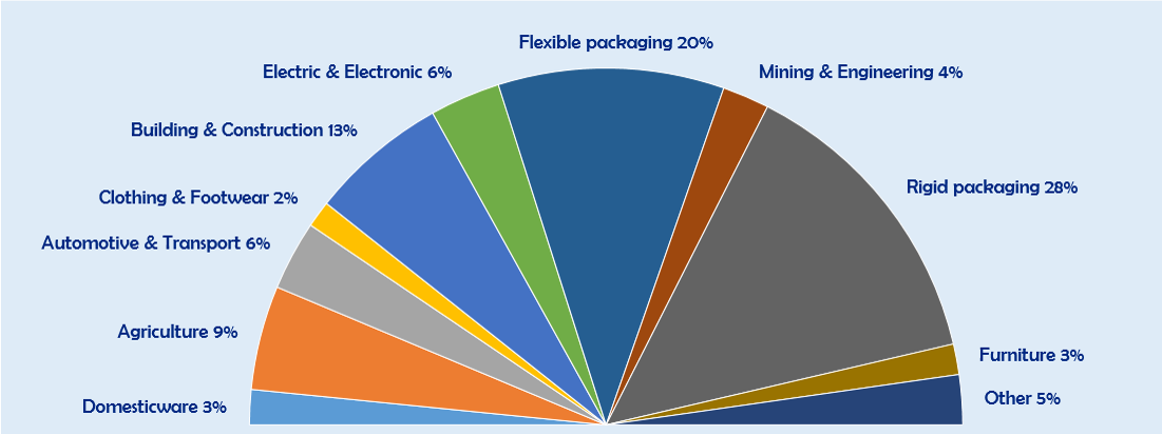
“Strengthening competition within the South African plastics industry can have a profound impact on the recovery of the broader manufacturing sector. Plastics are integral to supply chains across healthcare, energy, aerospace, automotive, maritime, construction, electronics, and packaging. This multi-sector dependency makes the plastics industry’s contributions vital. In 2023, the sector accounted for 1.8 % of South Africa’s GDP and 15.8 % of Manufacturing GDP, highlighting its critical role,” says Anton Hanekom, Executive Director of Plastics SA.
Plastics are integral to supply chains across healthcare, energy, aerospace, automotive, maritime, construction, electronics, and packaging.
Although South Africa’s plastics industry is relatively small on a global scale, representing less than 0.4% of global production, it remains the largest in Sub-Saharan Africa. In 2023, 1,568 kt of virgin polymer were used in the production of plastics across a variety of industries. The packaging sector dominated consumption at 48.2 %, followed by building and construction (12.5 %), agriculture (9.4 %), electronics (6.4 %), and the automotive industry (6.3 %).
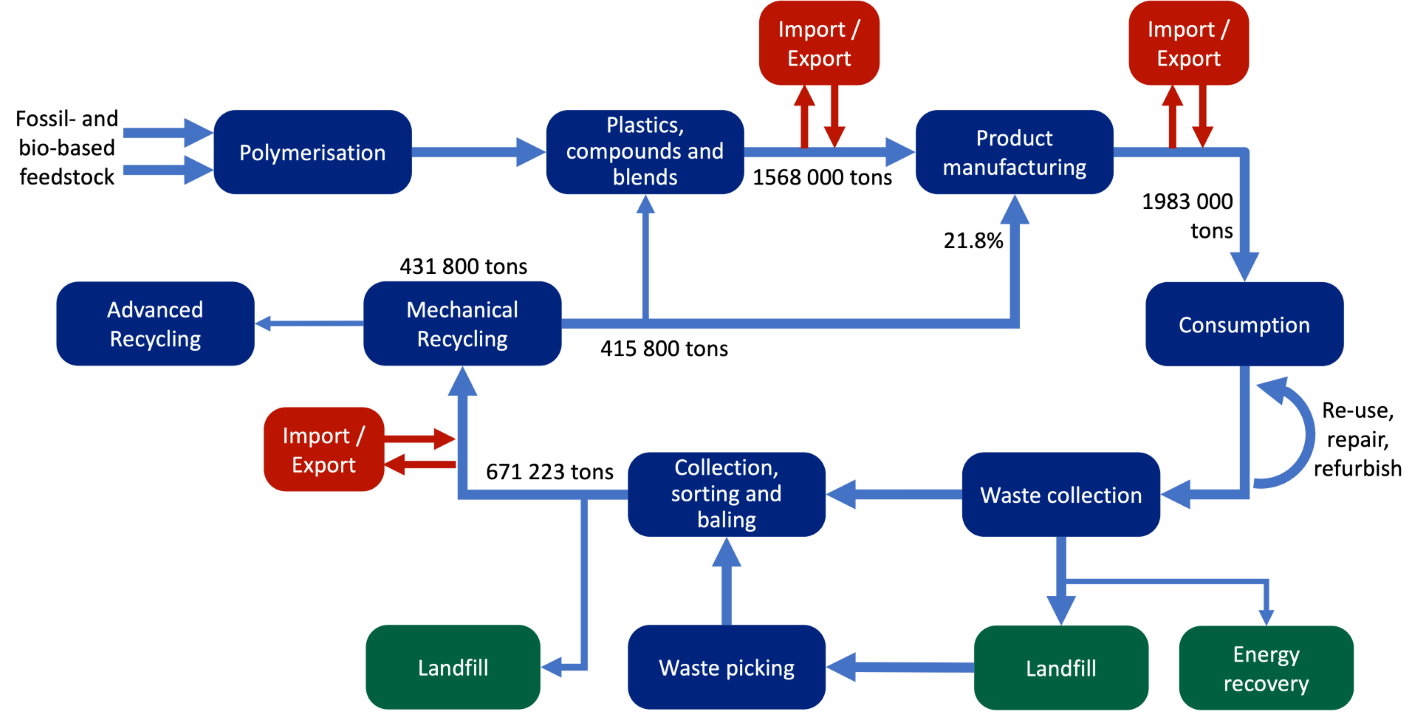
Recycling growth and challenges
Recycling continues to be a dynamic area within the plastics industry. An impressive 431,800 tons of plastics were recycled in 2023, up from 368,800 tons in 2022. This resulted in an input recycling or collection rate of 52 %, a significant increase from 42.9 % the previous year. The output recycling rate also rose, reaching 27.5 % from 22.9 % in 2022.
These figures position South Africa as a leader in mechanical plastics recycling, outperforming many developed nations in mechanical recycling thin polyethylene films and contaminated post-consumer plastics.
An impressive 431,800 tons of plastics were recycled in 2023, up from 368,800 tons in 2022.
Despite these successes, there are still significant quantities of recyclable plastic waste ending up in landfills. Increasing both the quantity and quality of recycled plastics is crucial to driving the circularity of the plastics industry.
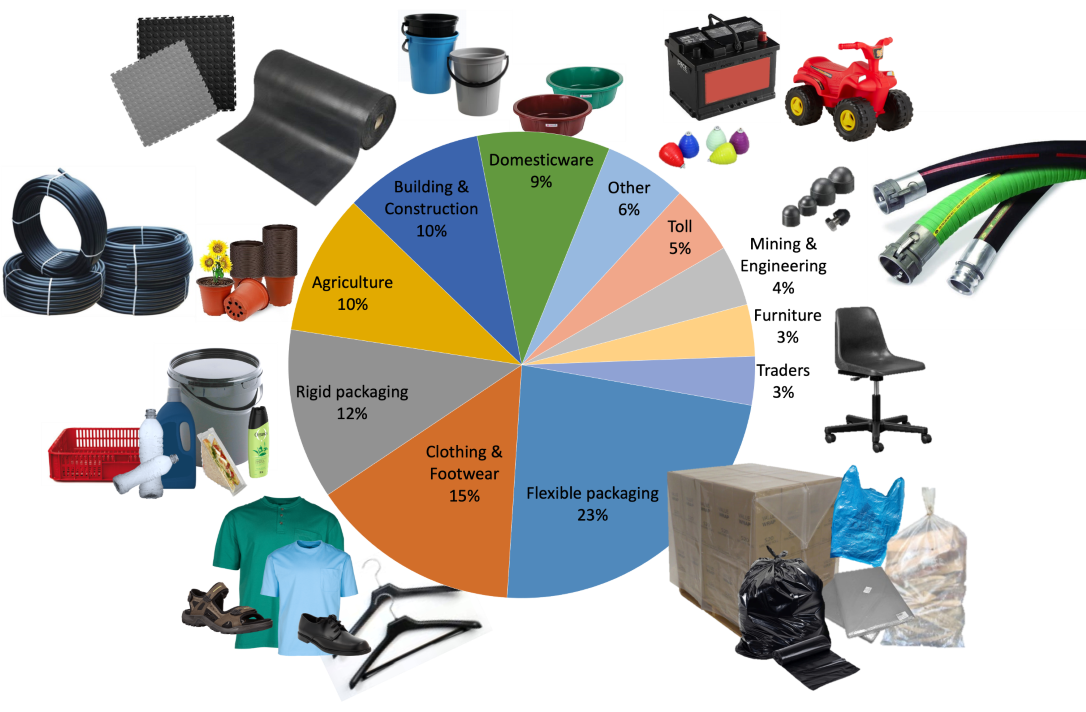
Employment and economic impact
The recycling sector remains a critical source of employment, particularly within the informal economy. In 2023, an estimated 95,900 income generating opportunities were sustained, including waste pickers and smaller entrepreneurial collectors. The industry contributed over R4.7 billion to the supply chain, including the informal sector, for collecting 671,200 tons for recycling.
International and local policy concerns
As the world prepares for the INC-5 meeting in Busan, South Korea, Plastics SA has expressed concerns over global moves to regulate Chemicals of Concern (CoC) through a standardized list. Hanekom emphasised that while the industry supports efforts to curb plastic pollution, it opposes blanket regulations and lists of CoCs, advocating for a more flexible, risk-based approach that considers local socio-economic conditions. He warned that such lists could have a detrimental effect on South Africa’s economy and its burgeoning plastics recycling industry.
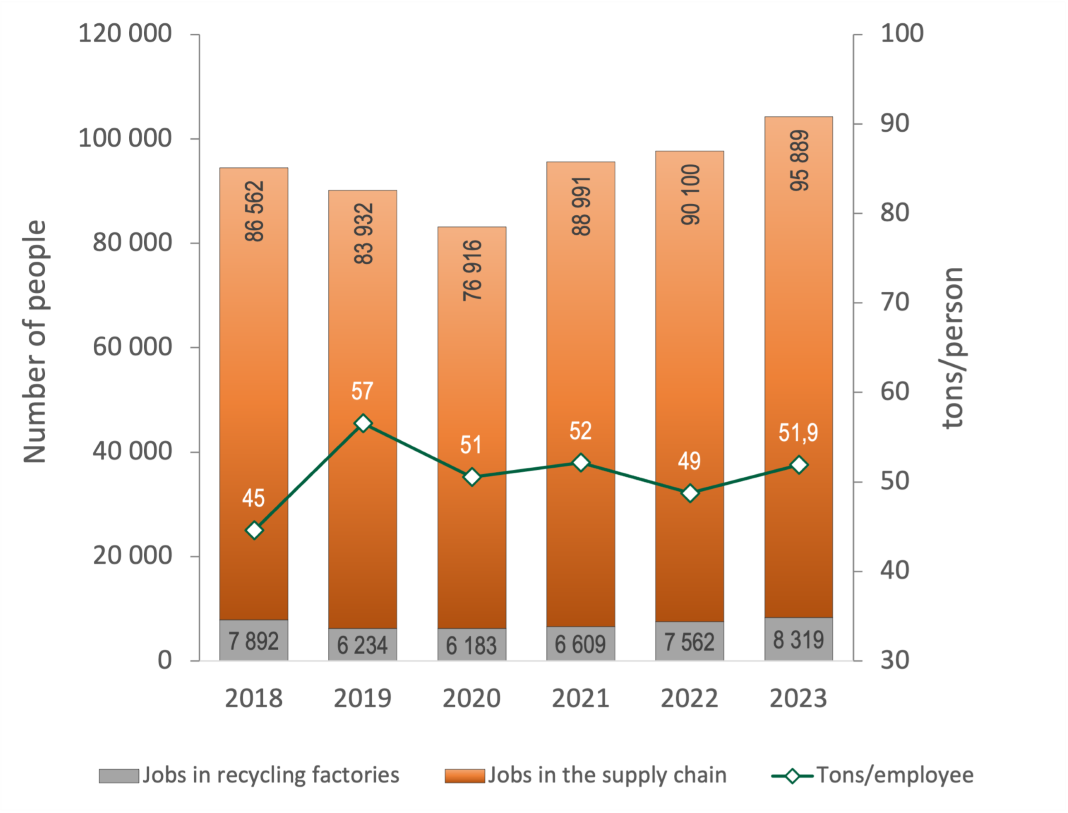
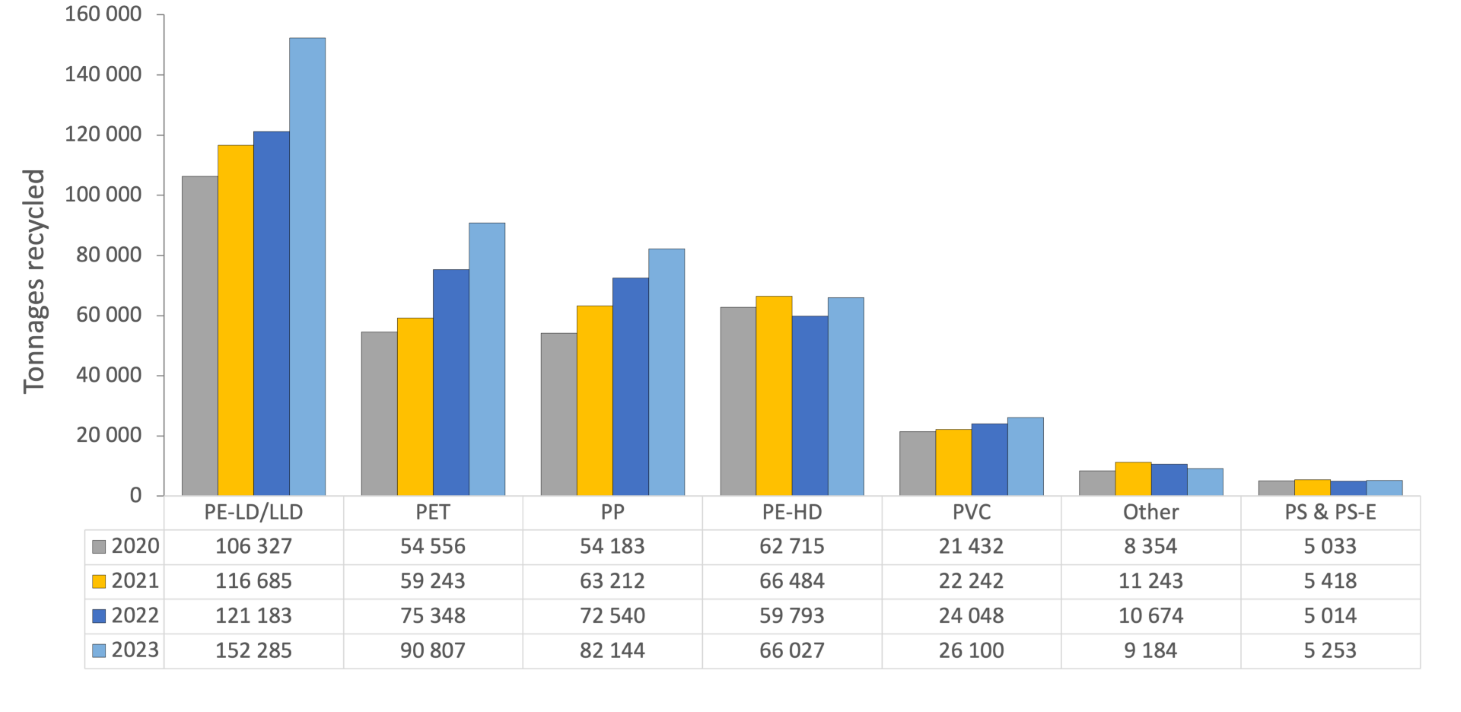
Commitment to Circular Economy
Plastics SA reaffirmed its commitment to supporting a circular economy, urging the design of products with recyclability in mind and the development of collection and recycling systems that allow for the highest quality recyclate. The organisation is also pushing for international treaties that promote sustainable product design and public-private partnerships to boost waste management and recycling efforts.
Conclusion
“South Africa’s plastics industry continues to be a vital contributor to the Sub-Saharan economy, playing a significant role in the country’s sustainable development and the global fight against plastic pollution. The latest data highlights a thriving plastics recycling sector, with rising recycling rates and decreasing reliance on fossil fuels. This progress reflects growing awareness and support for recycling, driven in part by the efforts of Producer Responsibility Organisations (PROs).
“These positive trends are encouraging as we approach the INC-5 negotiations later this year. We applaud our raw material producers, converters, recyclers, product designers, brand owners, and consumers who are collectively advancing South Africa’s recycling industry and achieving these notable milestones. Although there is still ample potential for further growth, we celebrate the active participation of all stakeholders in building a robust, sustainable recycling industry,” Hanekom concludes.
For more information, visit www.plasticsinfo.co.za




